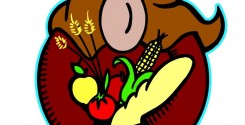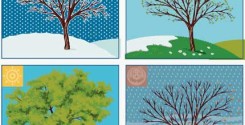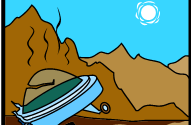This is a performance poem for older primary children. The individual letters of the word HARVEST are held up by seven children. At the beginning of each verse the children rearrange themselves so that they are in a suitable order for the bold words that follow. The appropriate letters are held aloft for each word, but […]
FIGURATIVE POEMS
Figurative language is simply a descriptive way of writing which helps the reader to imagine a picture of the subject or scene, and to bring out the reader’s emotions and help them to relate to the words. In other words, it’s just about using different ways to make your writing interesting! There are many different ways to do this by:
making comparisons (similes and metaphors), repeating sounds (alliteration, assonance and consonance), exaggeration (hyperbole), appealing to the senses (onomatopoeia), and creating images (imagery and personification).
Many of my poems include figurative language; some will maybe only use one form, others will use lots. Therefore, all the poems listed below include some element of figurative language, but they are also then separated into ALLITERATION POEMS, PERSONIFICATION POEMS etc, according to what figurative language is included, so if you are looking for specific examples just look at the drop down menu that appears when you hover over the heading of FIGURATIVE POEMS. My poems will, of course, be duplicated in several of the categories of figurative poems if they include more than one element of figurative language. Look at the TEACHERS’ PAGE, FIGURATIVE WRITING intro to understand more about what each type of figurative language is; it’s nothing like as complicated as the words make it sound!





